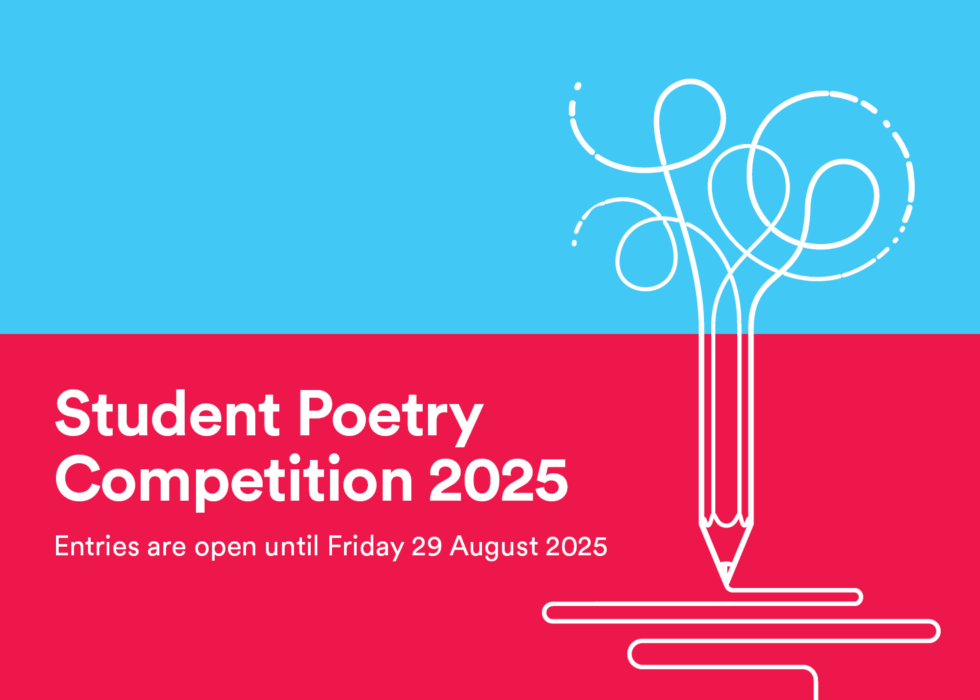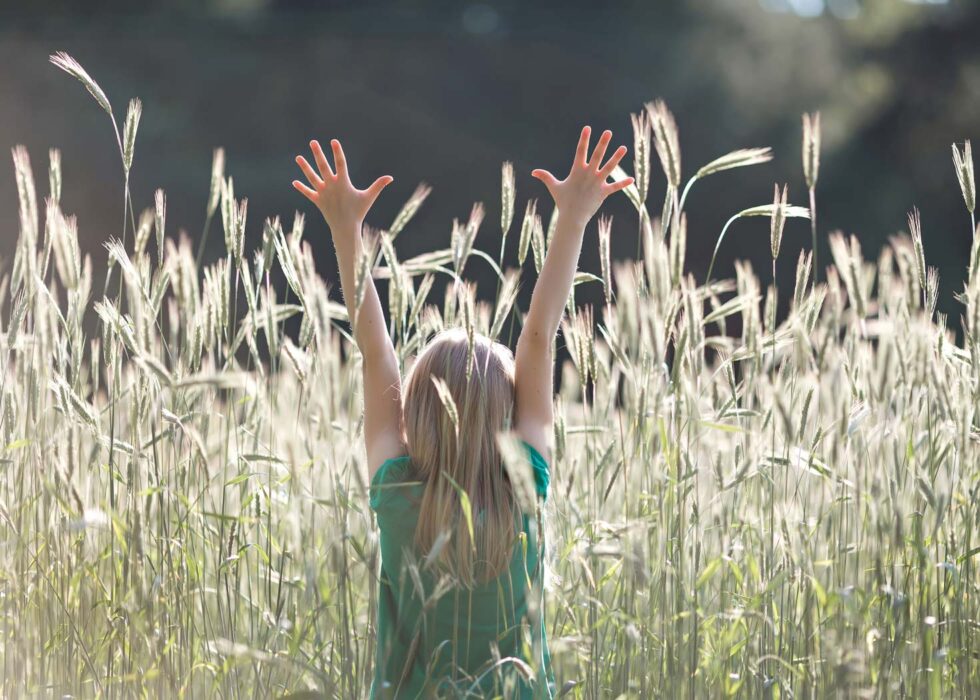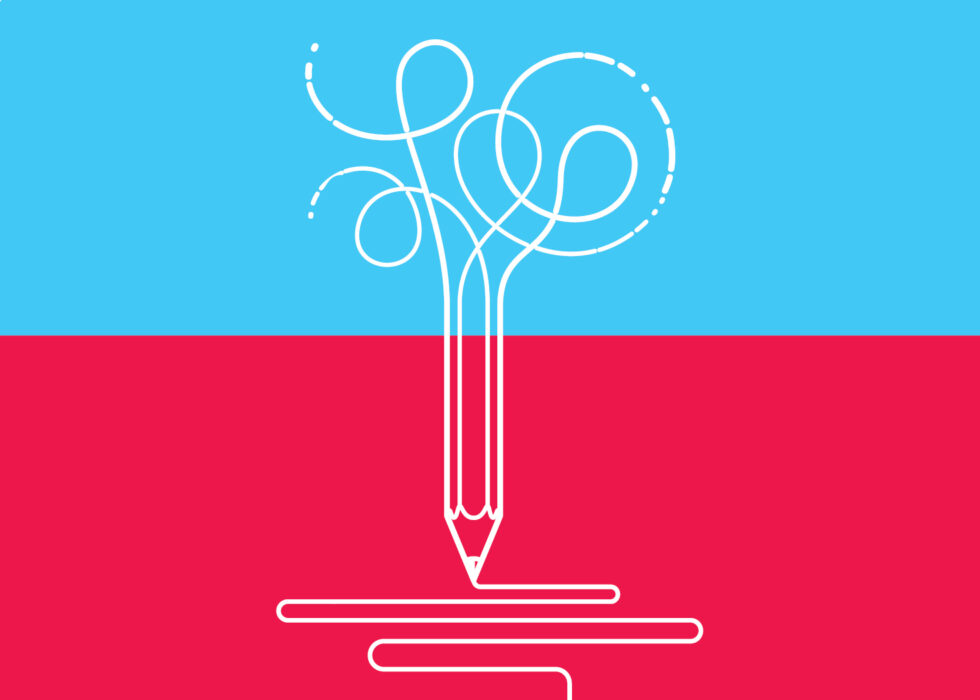With entries now open for the Student Poetry Competition, ISV’s Diane Bourke shares timely advice for budding performance poets.
In 2022 we added a performance category to ISV’s Student Poetry Competition, and we do so again this year. This section has continued to gain momentum.
Performance poetry is a term that can be used for all poetry that is written with the aim of being performed. Students can then make a video of themselves speaking or performing their words, bringing energy and conviction to their work.
If students enjoy music, catchy rhymes or hip-hop and rap this could be for them. Sometimes, the lyrics of a song speak in a way that makes people want to remember them forever.
Songs have been described as ‘simple heartfelt, poems set to music’. Bob Dylan once said, ‘Anything worth thinking about is worth singing about’. We take this one step further and say, ‘Anything worth thinking about is worth writing about, particularly in the form of poetry’.
Performance poetry can also be referred to as ‘slam poetry’, ‘spoken word poetry’, as ‘a script’ and even sometimes as a form of rap or hip-hop. Whatever the terminology, we see them as legitimate poetry involving a performance.
Slam poetry is spoken word poetry that is performed before judges and an audience, whereas a spoken word poem refers to a poem that is written to be performed, anywhere the poet chooses. Both involve performing/reading the poem aloud, using body language, gestures and facial expressions to create the intended message.
In past competitions, many students were videoed reading their terrific poems aloud. Although they were legitimate entries, they often lacked the energy suggested above. On the flip side there were many wonderful written poems that cried out to be recited aloud. Think about which category best suits the poem to be submitted.
Charlie Russo from Woodleigh School was one of the winning performance poets from 2023, with their poem ‘A Voice’. The judges said their ‘confident body language and natural pace let the wonderful words of the poem do the work’.
Before students set out to write their performance pieces, there are elements of performance poetry that need to be considered.
Concrete language
A well-composed performance poem uses concrete imagery to give the audience a descriptive picture to imagine.
Literary devices
Performance poetry often contains literary devices. They help to make the spoken word more than just simple sentences. Examples include:
- Simile – As brave as a lion.
- Metaphor – She is on the crest of a wave.
- Personification – I wandered lonely as a cloud.
Attitude
Students should perform it in a way that truly demonstrates their opinions and feelings about the topic. It’s the attitude that is evident that makes a spoken word poem more than just a recitation.
Repetition
Repeating some phrases or words to create emphasis is often a feature of Performance Poetry. Powerful words or phrases can link with the minds of your audience. Not to be overdone though.
Rhythm
This refers to a pattern of sound that comes with stressing different syllables. It can make the poem flow as rhythm is readily discerned by the ear. Sound devices like onomatopoeia or alliteration can also be used to create rhythm.
Rhyme
Rhyme, one of the first poetic devices young poets become familiar with, is often used in performance poetry. The advice here would be to use it sparingly.
There is much that can be done to support students as they venture into performance poetry.
They can be supported to think about how they wish to perform their poem. Encourage them to be prepared to try different things to see what works best for them.
Speaking clearly is essential, as is pausing to create tension. Changing the recitation speed from slow to fast and vice versa helps. Assist students to understand and notice this.
Encourage students to think about creating an elliptical structure where things that have already been said are revisited later in the performance.
Good posture is essential. Motivate students to stand up straight with their shoulders back, chin up and head high. Have them practise not staring at the floor or their paper. Inspire them to look confident and assertive. ‘Confident and assertive’ could become a mantra.
Assist students to use facial expressions when performing their spoken word poetry. This helps the audience appreciate a point students want to make and understand the emotions involved with the words.
Most importantly, ensure students relish the experience and have fun.
Remember too, whether the poetry be written or performance, the following:
- Learning to draft is critical. Encouraging students to spend time on a single poem is invaluable. Furthermore, it helps them learn patience and understand creative development. Besides, retained drafts illustrate the progress from draft to draft.
- Accept that writing poetry takes time; it is fine to put a draft away and let the mind work on it at a subconscious level before reviewing it with fresh eyes and making changes where appropriate.
- When writing poems – less is more. Encourage students to prune their poems again and again. Every word written should bring something to the poem.
- Encourage students to ask friends and family to read their poems aloud so they can hear what it sounds like. The poet needs to be happy with what he/she hears.
Poetry is one of the oldest literary forms. The earliest poems were often sung or recited to pass on oral histories, law and ancestral information before the development of writing.
One of the earliest poems was ‘The Epic of Gilgamesh’ from around 2000BC. It is wonderful to dwell on this as we see the resurgence of performance Poetry today.
Find out more about the Student Poetry Competition 2025.
Diane Bourke is a Project Manager at Independent Schools Victoria.


